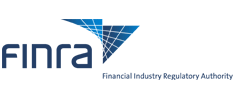
FINRA Fines MetLife Securities and Affiliates $1.2 Million for Email Supervision Failures
Investigation of Broker Misconduct Continuing
Washington, D.C. — The Financial Industry Regulatory Authority (FINRA) announced today that it has fined MetLife Securities, Inc., and three of its affiliates a total of $1.2 million for failing to establish an adequate supervisory system for the review of brokers' email correspondence with the public. The fine also resolves charges of failing to establish adequate supervisory procedures relating to broker participation in outside business activities and private securities transactions.
Those failures allowed two MetLife Securities brokers to engage in undisclosed outside business activities and private securities transactions without detection by the firm, costing some firm customers millions of dollars.
The three MetLife Securities affiliates are New England Securities Corp., Walnut Street Securities, Inc. and Tower Square Securities, Inc. All are headquartered in New York.
From March 1999 to December 2006, MetLife Securities and its affiliate broker-dealers had in place written supervisory procedures mandating that all securities-related emails of brokers be reviewed by a supervisor. However, the firms did not have a system in place that enabled supervisors to directly monitor the email communications of brokers. Instead, the firms relied on the brokers themselves to forward their emails to supervisors for review. To monitor compliance with the email-forwarding requirement, the firms encouraged — but did not require — managers to inspect brokers' computers for any emails that had not been forwarded as required. But brokers were able to delete their emails from their assigned computers, thus rendering spot-checks unreliable.
The firms also conducted annual branch audits, which were likewise ineffective because they did not allow for timely detection of email-forwarding failures. Moreover, the method employed by the auditors to identify email-forwarding deficiencies (prior to July 2005) was itself flawed, consisting mainly of a review of hard-copy files for any correspondence (including emails) that had not been forwarded. Brokers were therefore able to withhold emails without detection by the firm and conceal evidence or "red flags" of misconduct contained in their emails.
"Although FINRA's rules afford firms the flexibility to tailor procedures that are appropriate for their particular business models, all firms must have the ability to flag emails that may evidence misconduct," said Susan L. Merrill, FINRA Executive Vice President and Chief of Enforcement. "Relying on brokers to provide copies of their own emails to supervisors for review is hardly an effective means to detect such misconduct."
FINRA further found that during the period from March 1999 through December 2006, two MetLife Securities brokers engaged in undisclosed outside business activities and private securities transactions without detection by the firm, although the misconduct was reflected in more than 100 separate emails that the brokers sent or received using their MetLife Securities email addresses. MetLife Securities did not discover the misconduct of either broker through supervisory review of emails because the brokers did not forward their emails to their respective supervisors. MetLife Securities ultimately discovered that one of those brokers, Mark Salyer, stole nearly $6 million from his customers in connection with his participation in numerous private securities transactions to raise capital for real estate development companies with which he had a relationship. In January 2009 the SEC barred Salyer from association with any broker, dealer or investment adviser. FINRA's investigation of the misconduct of the other MetLife broker is continuing.
FINRA also found that the firms' inability to ensure compliance with the email-forwarding requirement meant they could not adequately enforce their own supervisory procedures relating to outside business activities and private securities transactions.
In concluding this settlement, the firms neither admitted nor denied the charges, but consented to the entry of FINRA's findings.
Investors can obtain more information about, and the disciplinary record of, any FINRA-registered broker or brokerage firm by using FINRA's BrokerCheck. FINRA makes BrokerCheck available at no charge. In 2008, members of the public used this service to conduct 11.6 million reviews of broker or firm records. Investors can access BrokerCheck at www.finra.org/brokercheck or by calling (800) 289-9999.
FINRA, the Financial Industry Regulatory Authority, is the largest independent regulator for all securities firms doing business in the United States. FINRA is dedicated to investor protection and market integrity through comprehensive regulation. FINRA touches virtually every aspect of the securities business — from registering and educating all industry participants to examining securities firms; writing and enforcing rules and the federal securities laws; informing and educating the investing public; providing trade reporting and other industry utilities; and administering the largest dispute resolution forum for investors and firms.
For more information, please visit our Web site at www.finra.org.
